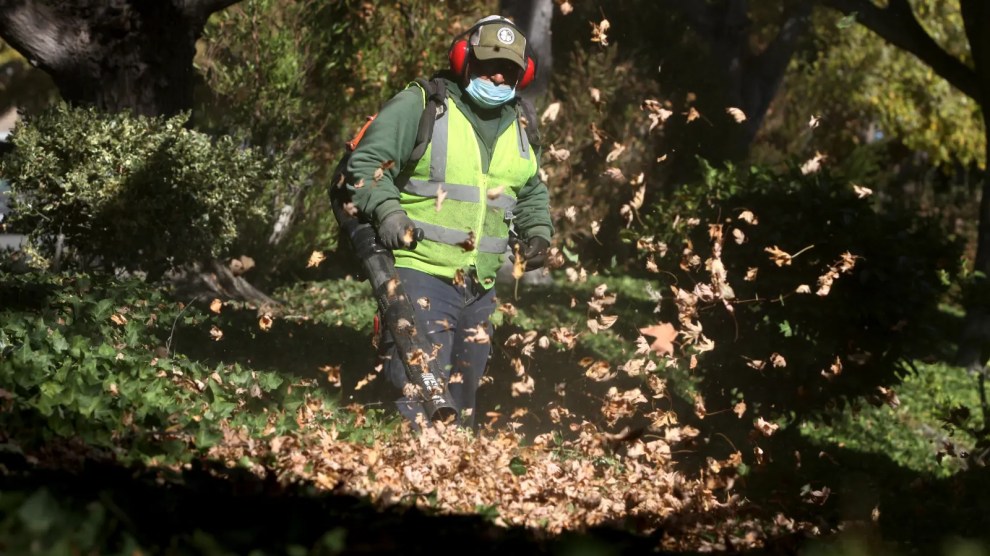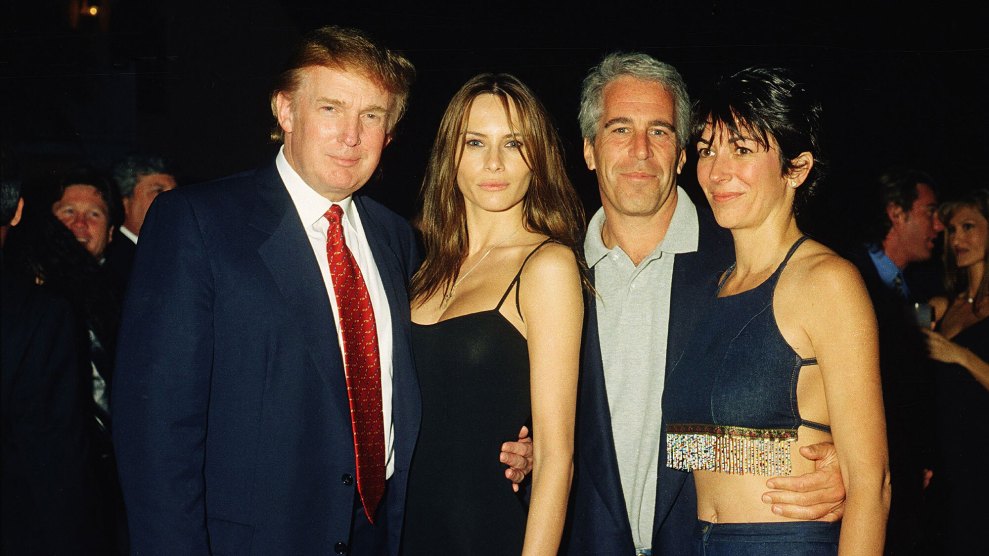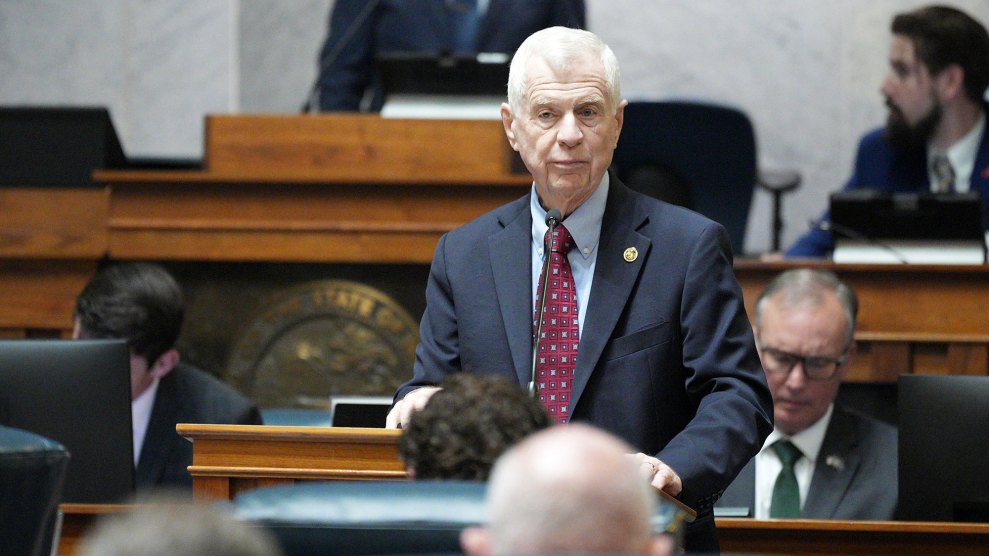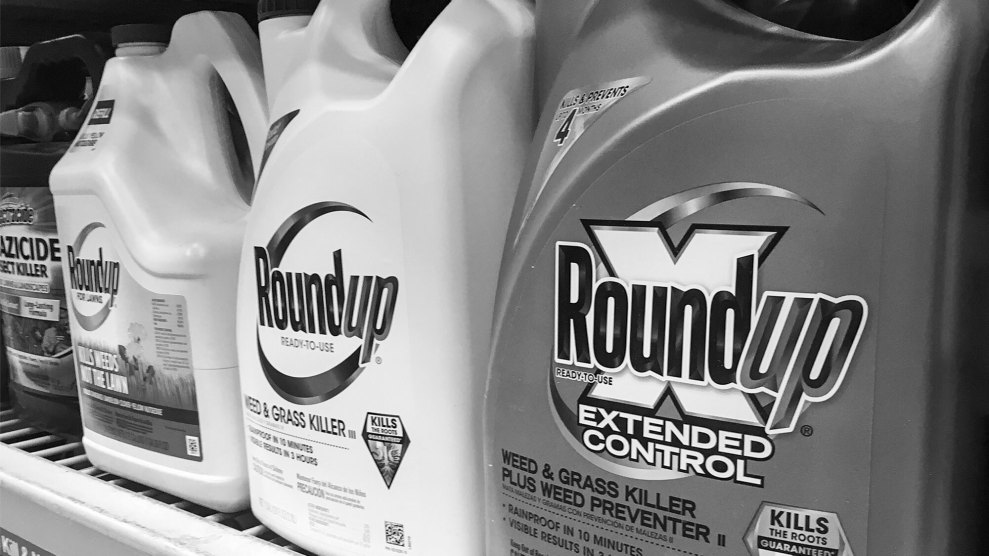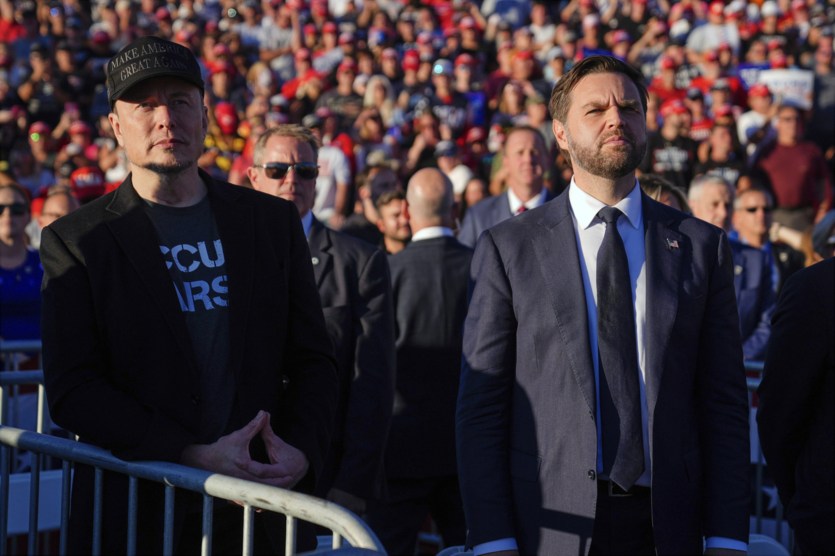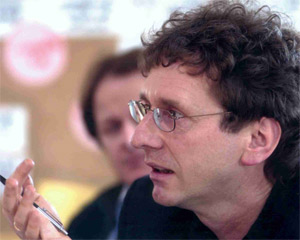
Interview by: <a href="http://www.motherjones.com/people/Kiera-Butler.html">Kiera Butler</a>
Mother Jones: What’s your definition of sustainability?
Michael Braungart: We need to make systems and products which are not just sustainable, but products which are good. Which are not just a little less bad, but which are good, which are beneficial. And therefore it goes beyond sustainability. It’s really about innovation, about making things that the other species are happy that we are here on this planet. So it’s not about minimizing our ecological footprint. It’s about having a big footprint, but making sure that this footprint becomes a wetland, that the other species are happy that we’re here.
MJ: Give me two examples—one of a product that is sustainable, and one of a product that’s actually making a positive impact on our planet.
MB: Take paper for example. Paper never is designed for recycling, yet now when you do recycling and make recycled paper to use it as toilet paper, just with one kilogram of paper you’re contaminating more than five million liters of water that can no longer be used as drinking water because they contain so many toxic chemicals. That looks sustainable, because it’s 100 percent recycled paper, but it’s the opposite. It basically makes the problem even bigger.
So we need to make systems which are good. For example, we developed an ice cream package for Unilever which is not just biodegradable. The ice cream packaging basically contains seeds from real plants. It’s a film when it’s frozen, and it’s a liquid at room temperature, so it degrades within hours, and at the same time it contains seeds from real plants. So whenever you throw things away, you support the biosphere with it. So you’re beneficial with it, not just a little less bad.
With all that, it means that instead of apologizing every day for being on the planet and drinking still water instead of sparkling water to reduce your carbon dioxide emissions, you can be beneficial, and this is why it’s not sustainability, because sustainability will only slow down the collapse of the planet. But it really will not change the whole thing.
MJ: I understand the concept of thinking in terms of added value instead of damage control, but isn’t there a danger of letting perfect become the enemy of good? It’s still important to recycle paper even if we know that that’s not necessarily the value-added kind of thing you’re talking about.
MB: But the paper industry now—there’s 20 years of recycling of paper in Europe at least, and at least 10 years of recycling of paper in the US, and the paper industry still didn’t change the ink. It even made it worse. For example, these green magazines, maybe even your own, were printed with soy-based ink. What a nightmare, because the pigments in these inks, which are heavy metals in most cases, are chlorinated substances. Before, they were not accessible for the biosphere. Now, when you put them into soy-based metrics, then they become accessible. Now we find them in the biosphere. Now we find that they accumulate in biological systems like breast milk. Before, at least they didn’t accumulate. At least they were not negative for human beings, but now we find them everywhere. So it’s more like when you sit in the Titanic, and you say, “Oh, isn’t it better we bail out the water with a tablespoon instead of a teaspoon?”
When people now try to be a little less bad, they make it even worse, because they basically stabilize the wrong systems and make them perfectly wrong. For example, East Germany has been protecting the environment so much better than West Germany just by inefficiency. Because they couldn’t destroy all the wetlands. So the species diversity in East Germany was so much higher than in West Germany because of inefficiency. East Germany was so inefficient that they couldn’t destroy the wetlands because they didn’t have the money for that. So if you do something wrong, don’t make it perfect, because then it’s perfectly wrong.
A simple example: When you’re in front of a Nazi, then definitely an inefficient Nazi is so much better than an efficient one. So don’t make the wrong thing perfect. That’s what’s done by all these what I call Al Goreisms. Al Gore, who forgot about the environment for eight years when he was in power, and then he came back and said, “Oh yes, I remember that even in kindergarten I knew about the greenhouse effect already.” And the key thing is, and really key for everything it’s related to, really protecting the environment, it’s not like Al Gore says. It’s not an ethical thing. Because not to take care of the greenhouse effect is just stupid. You don’t need ethics for that. Because you’re just an idiot when you don’t take care of the greenhouse effect. You don’t need ethics for that. Because when you make it an ethical problem, what you could see with Al Gore, you forget about ethics when you need it. Because he was in power and he was diluting the Kyoto treaty. He said, “Oh, we can’t do this for American industry,” and he later didn’t even get the diluted version ratified.
MJ: Let’s pretend that we make all of this good stuff. One could argue that it is still better for somebody not to buy anything at all—that consumerism is not good for the environment.
MB: I only have compassion for that person. The best thing is not to do any gymnastics, to stay in bed, to minimize your exhalation, to cut your hair short to use less shampoo. You cannot even shoot yourself, because you would still have emissions. So basically out of all this blame and shame debate we generated this feeling that we are paying this planet and it would be better if we wouldn’t exist. Look at ants, look at other species on this planet. They don’t reduce, they don’t avoid. Look at a cherry tree in spring. No reduction, no avoidance, no consumerism of blossoms or whatever. No, it’s celebrating abundance, but to be good. And for being good you can do as much as possible. And you don’t need to be perfect. You can say in 10 years all the products will be either good for the biosphere or for the technosphere. And as a customer, the more you buy the quicker I can make my change. If you make a green seal on your product, it says “Hey, close down the factories,” even better. So they need to make changes by selling their stuff, even if it’s not perfect.
MJ: But even if you make a great product like that, you still have to manufacture it.
MB: You want to manufacture it. It’s a different thing. We celebrate the human footprint. When you’re in Sweden, I understand, your footprint means the soil doesn’t come back for 20 years. But when you’re in Italy, your footprint means the water stays longer in the meadow. So why don’t you have a big footprint which is beneficial for the others? You know this joke where there’s one planet meeting another one? And one says, “Hey, you really look terrible.” The other planet says, “Yes, I know. I have Homo sapiens.” And the other planet says, “Oh yes, I know that. I had this before. But don’t worry, it will disappear.”
We celebrate human genius. Look, our natural lifetime expectation would be 30 years. That’s it. Ninety-five percent of all the people who ever lived on this planet didn’t live longer than 30 years. Should we now say that all this activism that is making healthy medicine, healthy nutrition, healthy housing is not good because people live so much longer? How perverse! Like Al Gore says, the most crucial thing for healing the planet is to stabilize human population. Which means everybody who shoots a lot of other people is really good for the planet. That’s the logic of it.
Now, I want to look at a child and say, “Hey how nice. How good that you’re here. I like that you breathe. I like that you move. I like that you look at things. I like that you grab things.” I want to celebrate human genius and creativity. So why should we apologize for being here instead of celebrating human genius and learning from nature? Nature never makes things that accumulate in breast milk. I analyzed breast milk now for 16 or 17 years already, and there was not one sample of any breast milk sample, whether in the US, or in Asia, or in Europe, which could be sold as drinking milk. Not one. Nature would never do this. How stupid. How perverse. And that’s really where we can learn. You don’t even want to know how toxic these chemicals are. It’s chemical harassment. It’s not fair. The baby didn’t ask for these products. We can learn from nature, but to be clear, the most toxic substances are still natural substances. The strongest carcinogens are still natural carcinogens. So how we get older than 30 years is human creativity, it’s science, it’s medicine, it’s hygienic knowledge, it’s chemistry, it’s physics. And we can celebrate this as well. So it’s both. It’s a real partnership.
MJ: Let’s say that we do make all of these really good products. How do we manufacture them without creating carbon emissions?
MB: We work on horizontal chimneys because the problem is carbon is too rare to put it in the atmosphere. We work with colleagues who do a project in Amsterdam which is called Happy Shrimp. So we use the carbon dioxide, we use the nitrous oxide to grow small organisms. Bacteria, algae, etc. We make things—we get oils out of it; we get carbohydrates out of it. We burn the material again, and we put it back into water cultures. If you look at algae, that’s why I say, “How can you be so perverse to make any kind of biodegradable plastic out of corn?” The productivity of water cultures to make algae is more than 200 times higher than any type of corn. So the way to hell is paved with good intentions. People try to be a little less bad. No, we need to make systems that are good.
Take the US, for example. The US lost about 50 percent of the whole topsoil in the last 200 years. How can you be so stupid to do agriculture which releases the carbon in the environment? To be clear, two-thirds of all the carbon is in the soil. Right now in the US we are losing about 5,000 times more topsoil than is rebuilt per unit. So in one year the US loses the topsoil that has been built for 5,000 years. So it’s not about CO2 being released in manufacturing. It’s about how you get it back into soil.
MJ: Are there any companies creating beneficial products like the ones you described?
MB: Yes, a lot of them. Shaw, for example, creating carpets. Shaw is the world’s largest maker of carpets. They’re nearly three times bigger than any competitor. They’re the world’s largest single user of polymers as well. They’re no longer selling carpets. They sell floor packaging insurance. Now they don’t need the cheapest stinking stuff anymore. They can use the best and healthiest polymers, which even clean air in houses. They’re not just not toxic; they clean the air.
The funny thing is in a very perverse way, George Bush was very beneficial for the US because everybody said, “Let’s not wait for the government anymore. It’s up to us.” I was in Australia last year, and at the same time George Bush was there. When our president gets here and says, “I am so glad to be in Austria,” when he’s in Australia—when you have such a president, you say, “I can do something because I know I’m smart. And if this person can be our president, my God, what potential do I have.” And you also know it’s up to us.



